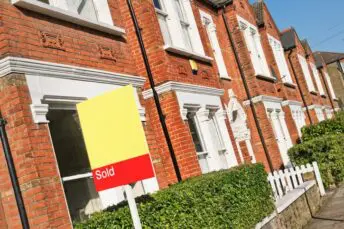This website uses cookies so that we can provide you with the best user experience possible. Cookie information is stored in your browser and performs functions such as recognising you when you return to our website and helping our team to understand which sections of the website you find most interesting and useful.
Strictly Necessary Cookies
Show details
Strictly Necessary Cookies are required for the website to function correctly.
| Name | Provider | Description | Expiration |
|---|---|---|---|
| PHPSESSID | hoa.org.uk | Essential for website to function properly | When the browsing session ends |
| hoa_newsletter_pop | hoa.org.uk | Ensures that the newsletter signup popup is only displayed once to a visitor, and isn't displayed on every page load | 7 days |
| newsletterpage2 | hoa.org.uk | Delays the display of the newsletter signup popup until the user is on their second page view | 1 hour |
| reviewPop | hoa.org.uk | Ensures that the reviews pop is only displayed once to a visitor | 24 hours |
| Local Storage (not a cookie) | youtube-nocookie.com | YouTube tracking cookie that is only set when a video is played on our site | n/a |
| moove_gdpr_popup | hoa.org.uk | Saves your preferences for cookie settings | 365 days |
| ai_session | www.landc.co.uk | Preserves users states across page requests | 30 minutes |
| ai_user | www.landc.co.uk | Used by Microsoft Application Insights software to collect statistical usage and telemetry information. The cookie stores a unique identifier to recognize users on returning visits over time | 24 hours |
| Local Storage (not a cookie) | https://www.landc.co.uk | Enables the L&C comparison tools to function correctly | n/a |
| ARRAffinitySameSite | white.reallymoving.com | Used to distribute traffic to the website on several servers in order to optimise response times | When the browsing session ends |
| ASP.NET_SessionId | white.reallymoving.com | Preserves the visitor’s session state across page requests | When the browsing session ends |
| __cf_bm | checkatrade.com | To allow users to search the Checkatrade search widget | 30 minutes |
Analytics Cookies
Show details
This website uses Google Analytics to collect anonymous information such as the number of visitors to the site, and the most popular pages.
Keeping these cookies enabled helps us to improve our website.
Please enable Strictly Necessary Cookies first so that we can save your preferences!
| Name | Provider | Description | Expiration |
|---|---|---|---|
| _ga | hoa.org.uk | This is a unique ID that is used to generate statistical data on how the visitor uses their website | 48 hours |
| _ga_X2LEWPWZEG | hoa.org.uk | Required for Google Analytics to be able to collect anonymous data | 48 hours |
| _gid | hoa.org.uk | This is a unique ID that is used to generate statistical data on how the visitor uses their website | 24 hours |
| _gat_UA-32915409-1 | hoa.org.uk | Required for Google Analytics to be able to collect anonymous data | 90 days |
Cookie Policy
More information about our Cookie Policy








